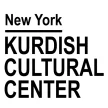"My Father's Paradise" by Ariel Sabar
 Ariel Sabar, My Father’s Paradise: A Son’s Search for His Family’s Past (Algonquin Books, 2009). Nonfiction. This book, the author’s debut, won the National Book Critics Circle award for autobiography.
Ariel Sabar, My Father’s Paradise: A Son’s Search for His Family’s Past (Algonquin Books, 2009). Nonfiction. This book, the author’s debut, won the National Book Critics Circle award for autobiography.
Discussed at our Book Club on September 6, 2022.
Ariel Sabar is an award-winning journalist whose work has appeared in The New York Times, The Atlantic, Smithsonian, Harper’s, The Washington Post, and many other periodicals. Since his debut book, he has gone on to write several others, including Heart of the City (2011) and Veritas (2020).
Ariel Sabar was present at the meeting and opened by explaining that his father, Yona Sabar, grew up in an isolated community of Jewish Kurds in Zakho, in the mountains of northern Iraq. There Kurdish Jews had lived at peace with their Muslim and Christian neighbors for thousands of years. People in Zakho spoke neither Hebrew nor Kurdish but neo-Aramaic, a language with ancient roots. Two thousand years ago it had been the common language spoken over much of the civilized world. But by the modern era, Aramaic had been reduced to remote enclaves like Zakho, isolated from the rest of the world. Most language experts assumed it was dead.
Ariel’s father, Yona, born in 1938, had an idyllic childhood in Zakho. Then after 1948 his family moved to Israel, where he studied languages at the university. He became a scholar of neo-Aramaic, his mother tongue, and over the course of his professional career he all but singlehandedly rescued it from obscurity. He taught for many years at UCLA. His son Ariel grew up in southern California’s sun-and-surf culture and was long oblivious to his father’s origins, the significance of Yona’s contribution, or his own Kurdish Jewish heritage. Only as an adult, as a new father himself, did Ariel start to look for it. His book is the story of that journey of discovery.
To the Book Club, Ariel observed that everyone who emigrates from a country has to make a choice about how much of the ancient history they will preserve and how much they will leave behind. “Would I be the one to break the chain?” he asked himself after his son was born. He had a promising job but quit “because something important was slipping through my fingers.” He could not miss this chance to make things right with Yona, his father. He interviewed Yona and wrote this book to explore what happens when we leave an ancient world in favor a modern one. “What did Yona take with him, what did he leave behind?” he asked himself. It’s important for us to talk to our immigrant parents now, he urged the Book Club, because “if we wait, our ancestors will elude us. If we wait, our children will venture too far into America to find their way back. I haven’t found all the answers yet, but if you’re clever enough, you can stop time long enough to look for them.”
My Father’s Paradise is available for purchase at Bookshop.org.















